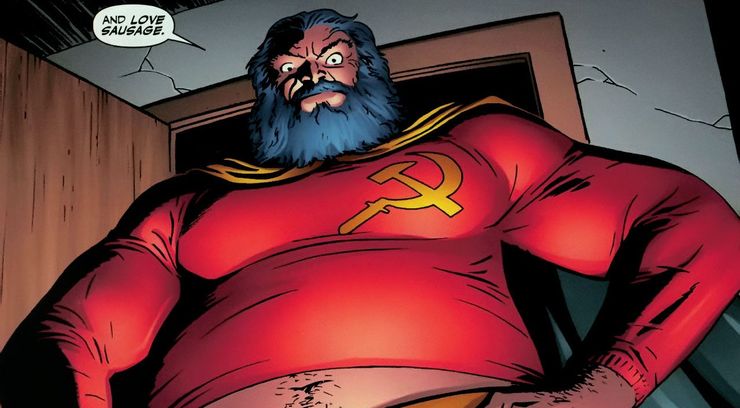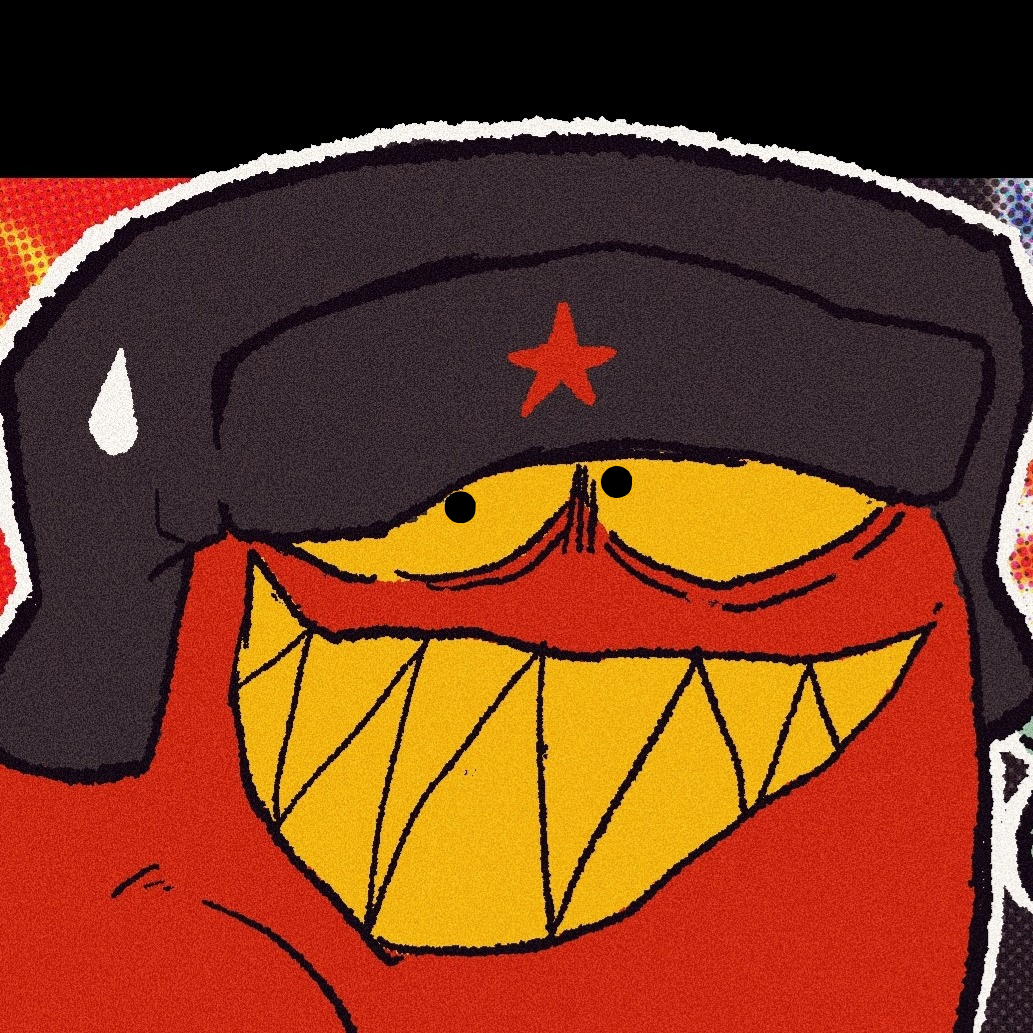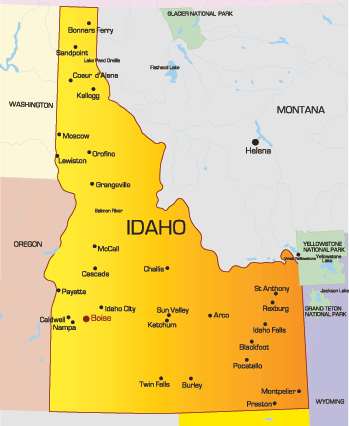Image (source here) is of a section of the Yarlung Zangbo river, which forms the deepest canyon on the planet.
The idea of doing any sort of general preamble for China is a little absurd given how ubiquitous they are in economics and politics, so I’m just going to hop right in to a recent news item of interest: China is working on the construction of an enormous new hydropower project in Tibet (@Metabola@hexbear.net had brought this up just before the last news mega ended).
This project (consisting of, I believe, five dams) will be overall three times larger than the Three Gorges Dam, will cost $167 billion, and will supply 70 GW (by itself more power than several significant countries generate). There are, of course, meaningful concerns regarding concerning environmental damage, but helping to avert catastrophic climate change seems worth it. The news coming out of the clean energy sector of China has getting only more encouraging over the last few years, even as the fully neoliberalized Europe and America descend into climate skepticism and refuse to adequately fund projects that could avert the worst of climate change.
Geopolitically, given recent India-China tensions (for example, sending Pakistan the equipment to shoot down Indian jets, as well as run-of-the-mill border tensions) one expects India to not receive the news very well, as the river upon which the dam is being constructed proceeds to flow into Arunachal Pradesh. But from what I understand of the Indian hydrological situation (which is, admittedly, not much), I don’t think enough of the water in India comes from the river for China to hypothetically cause any kind of water shortages in India - the monsoons seem to supply plenty of freshwater all by themselves. Nonetheless, as with all Chinese news, wild fearmongering abounds.
Last week’s thread is here.
The Imperialism Reading Group is here.
Please check out the RedAtlas!
The bulletins site is here. Currently not used.
The RSS feed is here. Also currently not used.
Israel-Palestine Conflict
Sources on the fighting in Palestine against Israel. In general, CW for footage of battles, explosions, dead people, and so on:
UNRWA reports on Israel’s destruction and siege of Gaza and the West Bank.
English-language Palestinian Marxist-Leninist twitter account. Alt here.
English-language twitter account that collates news.
Arab-language twitter account with videos and images of fighting.
English-language (with some Arab retweets) Twitter account based in Lebanon. - Telegram is @IbnRiad.
English-language Palestinian Twitter account which reports on news from the Resistance Axis. - Telegram is @EyesOnSouth.
English-language Twitter account in the same group as the previous two. - Telegram here.
English-language PalestineResist telegram channel.
More telegram channels here for those interested.
Russia-Ukraine Conflict
Examples of Ukrainian Nazis and fascists
Examples of racism/euro-centrism during the Russia-Ukraine conflict
Sources:
Defense Politics Asia’s youtube channel and their map. Their youtube channel has substantially diminished in quality but the map is still useful.
Moon of Alabama, which tends to have interesting analysis. Avoid the comment section.
Understanding War and the Saker: reactionary sources that have occasional insights on the war.
Alexander Mercouris, who does daily videos on the conflict. While he is a reactionary and surrounds himself with likeminded people, his daily update videos are relatively brainworm-free and good if you don’t want to follow Russian telegram channels to get news. He also co-hosts The Duran, which is more explicitly conservative, racist, sexist, transphobic, anti-communist, etc when guests are invited on, but is just about tolerable when it’s just the two of them if you want a little more analysis.
Simplicius, who publishes on Substack. Like others, his political analysis should be soundly ignored, but his knowledge of weaponry and military strategy is generally quite good.
On the ground: Patrick Lancaster, an independent and very good journalist reporting in the warzone on the separatists’ side.
Unedited videos of Russian/Ukrainian press conferences and speeches.
Pro-Russian Telegram Channels:
Again, CW for anti-LGBT and racist, sexist, etc speech, as well as combat footage.
https://t.me/aleksandr_skif ~ DPR’s former Defense Minister and Colonel in the DPR’s forces. Russian language.
https://t.me/Slavyangrad ~ A few different pro-Russian people gather frequent content for this channel (~100 posts per day), some socialist, but all socially reactionary. If you can only tolerate using one Russian telegram channel, I would recommend this one.
https://t.me/s/levigodman ~ Does daily update posts.
https://t.me/patricklancasternewstoday ~ Patrick Lancaster’s telegram channel.
https://t.me/gonzowarr ~ A big Russian commentator.
https://t.me/rybar ~ One of, if not the, biggest Russian telegram channels focussing on the war out there. Actually quite balanced, maybe even pessimistic about Russia. Produces interesting and useful maps.
https://t.me/epoddubny ~ Russian language.
https://t.me/boris_rozhin ~ Russian language.
https://t.me/mod_russia_en ~ Russian Ministry of Defense. Does daily, if rather bland updates on the number of Ukrainians killed, etc. The figures appear to be approximately accurate; if you want, reduce all numbers by 25% as a ‘propaganda tax’, if you don’t believe them. Does not cover everything, for obvious reasons, and virtually never details Russian losses.
https://t.me/UkraineHumanRightsAbuses ~ Pro-Russian, documents abuses that Ukraine commits.
Pro-Ukraine Telegram Channels:
Almost every Western media outlet.
https://discord.gg/projectowl ~ Pro-Ukrainian OSINT Discord.
https://t.me/ice_inii ~ Alleged Ukrainian account with a rather cynical take on the entire thing.
Time to address the elephant in the room for Mr LargePenis. Wtf is happening in Syria? I’ll first have a little breakdown of who the Druze are, then we’ll see if we can cook up a little take on everything that’s happening.
-
the Druze: I don’t think that anyone on this website is Druze. In fact I don’t think that anyone here has even interacted with them. I don’t know if this crosses some rule on this cursed website, but the Druze are very fucking weird to say the least. Let’s first understand who they are. Their religious beliefs are basically secret, all Druze books aren’t allowed to be shown to any non-Druze person. Even Druze people don’t really know what their beliefs are, as they follow a policy of secrecy even within the group itself. A random young Druze person isn’t really allowed to learn the real beliefs until they reach a certain age, that’s when the Sheikhs are in charge of basically measuring how much that person is deserving of knowing. Their main thing is unwavering monotheism, even their official name is not the Druze, but Al Muwahiddin (the Monotheists). They also believe in reincarnation, which is called At Tanasukh in Arabic. The faith itself originated in the early 11th century in Egypt as an offshoot of Ismaili Shia Islam during the reign of the Fatimid Caliph Al Hakim. The Druze believe that Al Hakim was a divine manifestation and a central figure in their faith, not merely a caliph but an incarnation of divine wisdom. They do not worship him as God, but see him as a hidden spiritual figure who will one day return. They also like all the usual prophets like Muhammed, Jesus and Moses, but have extra respect for Prophet Shuayb who they view as their main spiritual ancestor. They also love Aristotle and Plato and other nerd philosopher Greek guys. They have four main centres in the Middle East which are completely disconnected from each other. The biggest concentration is in Jabal Al Arab in Syria, located in Suweyda Governorate, which is around 90% Druze, and the scene for all the action in the past few days. They also dominate the Galilee in occupied Palestine and the occupied Golan Heights. They also have a significant presence in Mount Lebanon, where they fought and won two important battles in Druze history against the Maronites of the mountain. They basically dominate all mountains in the Levant area, and are split between Lebanon, Syria and Israel, with three completely different paths in the societies of all three countries.
-
Druze politics: In Lebanon, Druze politics mainly consolidated in the Jumblatt family, with Kamal Jumblatt dragging Druze politics into a socialist pan-Arab path. During the civil war, the Druze fought side to side with Palestinians, Communists and later Hezbollah and Amal. Their politics were mainly revolutionary, and against the exclusionary policies of the then-Maronite dominated Lebanese state. After the assassination of Kamal, the leadership of the Druze was passed down to Lebanon’s now-favorite Twitter shitposter, the wacky and contradictory Walid Jumblatt, and we’re now living in the era of the 3rd generation of Jumblatt leadership with Walid’s son Taymour taking over. Their main political party is called the Progressive Socialist Party, and Druze people just like other sects in Lebanon are sectarian robots who just vote for any dude that follows the same sect. In Syria, they’re a bit more insular, but still had a significant role in the founding of the Syrian state. They gained prominence during the Great Syrian Revolt against French rule, led by the Druze leader Sultan Al Atrash. After Syria’s independence, the Druze maintained a pragmatic relationship with the state, with some members reaching high positions in the Baathist era. During the Syrian Civil War, Druze communities were divided, with some supporting the Assad regime and others just wanting to stay out of the problems. Their main centre in Suweyda stayed under Assad control during the whole war. One of the main characters for the SAA was Druze, everyone who was extremely online during the main stages of the war should know the name Issam Zahreddine. Relations between Assad and the Druze later soured in mid-2023, with weekly protests in Suweyda City which were called the Revolution of Dignity. They mainly protested fuel prices and stuff like that in the beginning, but it took on a more Druze nationalist character later. The thing is that Suweyda was pretty much semi-autonomous even during the war. Assad made it easier for Druze men to dodge military service for example by establishing an extensive network of officers to bribe. The presence of the SAA in Suweyda was also mainly Druze officers and soldiers, who stayed loyal to the state through the system of the Syrian state pretending that Suweyda Governorate didn’t really exist, while keeping the Governorate safe from ISIS or other Jihadist infiltration. In Israel we have a more evil turn suddenly. The Druze in Israel maintain a close, but controversial relationship with the Israeli state. They aren’t exempt from mandatory military service like other Arabs in Israel, and many Druze soldiers have died fighting in conflicts like the current Gaza genocide, which leads to understandable hate from other Arab groups who see them as collaborators. Politically, Druze leaders generally align with right-wing ultra-zionist parties or centrist zionist blocs. Their participation in elections often supports governments that continue evil Israeli bullshit against Arabs of 1948 and Palestinians under occupation. Druze politics in Israel tends to prioritize integration and cooperation with the Israeli government over confrontation in any shape or form. Despite their loyalty and historical glazing of Israel, the Druze community still faces social and economic discrimination by Israelis who will never accept an Arab as an equal no matter how much you suck up to them.
-
Wtf is happening now: If you have made it so far and read all the historical nerd stuff above, then you will understand if we summarise the three Druze communities in the following terms: confrontation in Lebanon, insular semi-independence in Syria, and pragmatism and sucking off the state in Israel. What’s happening now within the Druze community in Syria is a combination of all these three paths into one. They’re confronting the mindless bloodthirsty Jihadi Syrian government led by Jolani by carving out a semi-independent Druze State in Suweyda Governorate, with a pragmatic appeal to Israel for security. Since the fall of Assad, the new government has been unable to establish any control in Suweyda Governorate, which has been controlled by a fully-Druze militia that mainly consists of former SAA officers who threw their old uniforms and now operate under the name Rijal Al Karama (Men of Dignity). As of now, Druze High Sheikh Al Hijri’s gamble seems to have worked. Israel airstriked the living shit out of Jolani’s army who were marching on Suweyda, and they managed to leverage that reality into a humiliating agreement for Jolani which basically makes Suweyda independent. Of course this was only possible because of Jolani’s idiotic management of the minorities question since the fall of Assad. The killings and kidnappings of Alawites on the coast showed the true colors of the new regime no matter how much Jolani tried to twerk for the West, the Gulf and even Israel since coming to power in Syria. The initial successful march on Suweyda by the new Jihadi Syrian Army left a trail of destruction and blood of innocent civilians, mainly committed by actual members of the new army with interesting Jihadi pasts. The Druze appealing to Israel for support is understandable from a pragmatic point of view, as their community genuinely faced a risk of oppression and perhaps even a threat of genocide if those Jihadis were allowed to rule over the Druze of Suweyda. The whole tribal forces nonsense was also an amateur move by Jolani who tried to benefit from the shitty relations between Druze and Arab Sunni Tribal Bedouins in the desert of Suweyda. No one could take the tribal forces thing seriously when they were departing from Damascus with heavy weaponry and then in later videos people noticed that half of these supposed tribal fighters were Uzbek and Uyghur jihadists that everyone knew from the Idlib days.
-
Who should I cheer for?: Absolutely no one. On one side you have Jihadi freaks who are supported by America and have committed indescribable crimes against Syrians already. On the other side you have an insular separatist community who put their interest over the unification of Syrian land, and now have committed a major unforgivable sin by openly collaborating with Israeli enemy to bomb other Syrians, even if they’re Jihadi freaks. My take: spare the civilians, but all the combatants hopefully have a fun time.
There’s actually a fairly sizeable Druze community where I am. They were a large part of the most active and dedicated protesters in the Palestinian movement here, but then when Assad was being ousted they started throwing “freedom” celebrations that alienated them from the Palestinian community, which was understandably upset about the collapse of Syria as a force for resisting the entity.
Now they’re protesting for our government to intervene against the Syrian state to protect the Druze, which of course our government would never do.
The whole tribal forces nonsense was also an amateur move by Jolani who tried to benefit from the shitty relations between Druze and Arab Sunni Tribal Bedouins in the desert of Suweyda. No one could take the tribal forces thing seriously when they were departing from Damascus with heavy weaponry and then in later videos people noticed that half of these supposed tribal fighters were Uzbek and Uyghur jihadists that everyone knew from the Idlib days.
Israel then “officially” stopped bombing them, but in actuality continued, even tonight Israeli aircraft dumped flares over the tribal forces as a warning. The long haired HTS guy that’s quite popular on social media also suddenly become part of the tribal forces. And of the tribes that were “mobilised” against the Druze, some had previously fought alongside ISIS, while others had previously fought alongside the SDF. Apparently some of the people mobilised were told that they were going to march to Suweyda, and then to liberate Gaza somehow? Very confusing situation all round.

As always, thank you.
Oh wow that religion part was interesting, I really didn’t know anything about these guys
Very interesting stuff. This is why I love the news mega. It’d be hard to find this sort of info in the West, especially from mainstream media. Thanks!
Very good post info dump on Druze

-
The images coming out of gaza are horrific. Anyone still defending Israel should just be executed
Apparently their bomb squad did an x-ray and said they were safe.

Free Syrian activist before the fall of Assad:
I’m a young (unveiled) free Syrian woman and I’d rather be ruled by conservative God-fearing Muslims than by the Assad genocidal militiasFree Syrian activist after the fall of Assad:
I am never tweeting about Syria again
Why are liberals doing this? You’ll never get the fascist vote.
death to israel death to israel death to israel death to israel death to israel death to israel death to israel death to israel death to israel death to israel death to israel death to israel death to israel death to israel death to israel death to israel death to israel death to israel death to israel death to israel death to israel death to israel death to israel death to israel death to israel death to israel death to israel death to israel death to israel death to israeldeath to israel death to israeldeath to israel death to israel death to israel death to israel death to israel



Some pictures posted online and a screenshot from al mayadeen live of Communist Lebanese revolutionary Georges Abdallah returning to Beirut today after 41 years in French prisons.
Here’s what he said when interviewed upon arrival.
Georges Ibrahim Abdallah:
Our Resistance is rooted in this land & cannot be uprooted. It is not weak, it is strong, & its leaders are its Martyrs. We must rally around the Resistance today more than ever before.
The Martyrs of the Resistance are the foundational base of any liberation movement. The Resistance is rooted in this land. So long as there is Resistance, there is return. The Resistance is not weak, it is strong through its Martyrs. The Resistance is weak only when its leaders are collaborators, but our Resistance is led by Martyrs.
The Resistance in Palestine must intensify. & it is a disgrace to history for Arabs to stand by & watch the suffering of the people of Palestine & Gaza. It is a disgrace that a young woman from Sweden, Greta, takes the sea to come to Gaza while millions of Egyptians sit idly by & say “God will bless the Palestinians in heaven.” Bring heaven to them now! Act!
Just metres away from the Kaaba of Prophet Muhammad, the children of Palestine are dying of hunger & Egypt’s soldiers are just watching! Where are the men & women of Egypt? If just a million people marched to Gaza’s border, the genocide would end. Just the bare minimum of dignity, especially compared to the mobilisations in Europe.
So a pretty insane story from Egypt is currently unfolding. Two Egyptian young dudes stormed a State Security police station in the Al-Massara district of Helwan and detained officers for five hours. The aim of this operation is allegedly protesting against the Egyptian regime’s policies, specifically demanding the opening of the Rafah crossing to allow food and aid into Gaza. The Egyptian Interior Ministry denied of course the whole incident, but we have multiple angles, and a four minute voice message from one of the guys that was recorded on Thursday. In the voice message, he called the operation “Hadid 17” in reference to Aya 17 in Surat Al Hadid in the Quran, “Know that Allah gives life to the earth after its death! Indeed, We have made clear the Signs to you, if you but reflect [upon them].”. He said that he wanted to give life to the dormant people of Egypt and inspire them to rise against the State. They also leaked tens of documents which shows the scale of arrests made by the Egyptian state, with tons of people being arrested for “Ikhwanism” or “Islamic proselytization”, which is just insane. One guy was arrested as a 14 year old for “Extremism”. The fate of those guys is still unknown, but I hope they’re safe. It’s pretty cool that this is happening on the same day that George Abdallah asked the people of Egypt to rise.
Cuba Approves Landmark Legal Gender Change
spoiler
In a major win for Cuba’s LGBTQ+’s community, the country’s parliament approved a new law that grants people the right to legally change their gender.
The Civil Registration Law does not require “a previous modification of appearance” or gender-affirming surgery. Individuals can use the law to change their gender twice, as long as the first time happened when the person was a minor.
In recent years, Cuba has been a trailblazer for LGBTIQ+ rights in the region. The 2019 Constitution and the 2022 Family Code legalized same-sex marriage and adoption.
Until now, it was near impossible for people to change their sex without a gender-affirming surgery. Until 2022, trans people could not legally change their name unless the new name corresponded to their legal gender. That provision was revoked in 2022, but the process remained long and difficult, according to trans activists.
Cuba’s first gender-affirming surgery occurred in 1988, and they became common in the late 2000s. But none have been performed in recent years as Cuba’s public hospitals have been forced to stop many surgeries due to the country’s economic crisis.
Cuba’s first gender-affirming surgery occurred in 1988, and they became common in the late 2000s. But none have been performed in recent years as Cuba’s public hospitals have been forced to stop many surgeries due to the country’s economic crisis.
I sure wonder what is causing this economic crisis
Someone sent me the article but the more I look through the website the more crazy it seems. 🙃
I guess its worth checking a real source for this and not some weird US ngo group.
Sorry for not checking terrible source
To be fair, that way of reporting - the passive voice - is typical of practically all mainstream outlets
I didn’t have much time to look through it, but this is the website for Cuba’s state newspaper, you may be able to find more information there. The Spanish language version may well have more articles, but my Spanish isn’t quite good enough yet to browse too much.
Nothing to see here, it just happened magically I guess. It would be crazy to even suggest the US are trying to strangle Cuba.
President Lula withdraws Brazil from International Holocaust Remembrance Alliance. Lula did not state the reasons for leaving the organization, which was created in the 1990s to combat anti-Semitism and anti-Zionism.
- Telegram
Cruise ship from the Genocidal Entity turned away from Greek island by Palestine protesters
Around 1,600 Israeli passengers on board the Crown Iris were prevented from disembarking amid safety concerns when more than 300 demonstrators on the Cycladic isle made clear they were unwelcome over Israel’s conduct of the war and treatment of Palestinians in Gaza. A large banner emblazoned with the words Stop the Genocide was held aloft alongside Palestinian flags.
Some passengers on the vessel reacted by raising Israeli flags and chanting patriotic slogans, eyewitnesses said.
I wonder if one of those “patriotic slogans” was (CW: Racism)
spoiler
“Death to arabs” 🤔
That slogan is the tamest one that would’ve been chanted
I want to know what they were chanting. No news outlet seems to be reporting, they’re just reporting what the protestors were saying.
Typically, these chants involve calls for further genocide at the least and SV against Palestinian children at their worst
I found one video. I do not speak Hebrew though, no idea what they are saying.
The cruise ship was called the “Crown Iris” maybe there’s more
Woo! Go Greece!
Another brave group of 300 greeks inspires the world!
Hunter Biden did an interview with Channel 5 and said if he were president he’d invade El Salvador to get the deported immigrants back.
https://twitter.com/CameronCorduroy/status/1947538636066721975
If I became president 2 years from now, or 4 years from now, or 3 years from now
Hunter Biden plotting a coup with an unknown date?
Katie Halper interviews John Mearshimer on “Israel”
I think the most important takeaway I see is the reminder of how from 1933 to 1941, the Nazis were basically roaming free in Europe. They had managed to annex Austria and Czechoslovakia, destroy Poland and Luxemburg, set up puppet regimes in France, Denmark, Belgium, and the Netherlands, and start the labor camps.
It was only until they made the fatal mistake of invading the Soviet Union, that they ended up stopped and Hitler offed himself, after 27 million Soviet deaths, of course.
It’s a grim reminder that we are in it for the long haul. We are talking of 8 years of almost complete Nazi hegemony in the region and passiveness from the Western powers, as well as the strategic retreat of the USSR.
It’s also a reminder that expansionist fascist powers will never be satisfied. The Zionists might very well end up annexing Gaza and the West Bank, it will not satiate them. They will go for Lebanon and Syria next. When they are done, Jordan and Egypt are on the chopping block. Then Saudi Arabia. They might build the NaZionist empire from the Nile to the Euphrates and still might be hungry for more.
But it’s also a reminder that they WILL be stopped. All imperial expansionist projects eventually die. Greece, Rome, Spain, France, England, they all had imperial might, and later died. The US is in its death rattle. The idology of the cancer cell will kill its host eventually.
It’s painful to live in a time where we see in plain sight how colonization works. Especially from the colonized south. But it’s important to remember that history is written in years, if not decades. And we need to have a political project that thinks in that time frame, instead of the now and immediate.
Death to Israel, Death to America.
Israeli soldiers arrested in Belgium after war crimes complaint by rights groups
Belgian federal police on Sunday arrested two Israeli soldiers facing accusations of war crimes in Gaza following a complaint by two rights groups.
The Federal Prosecutor’s Office on Monday said it received two complaints on Friday and Saturday from the HRF and Glan, concerning “serious violations of international humanitarian law allegedly committed in the Gaza Strip by two members of the Israeli army” who were in Belgium to attend the Tomorrowland festival.
The prosecutor’s office said it has determined that it might have jurisdiction on the case based on the new Article 14/10 of the Preliminary Title of the Code of Criminal Procedure, which entered into force on 28 April 2024. The article grants Belgian courts jurisdiction over crimes committed outside Belgium based on the Geneva Conventions of 1949 and the Convention against Torture of 1984.
“In light of this possible jurisdiction, the Federal Prosecutor’s Office instructed the police to locate the two individuals mentioned in the complaint and to proceed with their questioning. After the interviews, they were released,” it said, adding that no further information will be provided at this stage of the investigation.
The arrests come a day after Belgium’s King Philippe described the situation in Gaza as “a disgrace to humanity”. He said in speech on Sunday that Belgium backs calls by the UN for “an immediate end to this unbearable crisis”.
Belgian judiciary stacking Ws for some reason
arrested two Israeli soldiers facing accusations of war crimes in Gaza … who were in Belgium to attend the Tomorrowland festival.
Oh fuck yeah!
After the interviews, they were released
goddamnit, so close

I like that they were “interviewed” and not interrogated like the fucking criminals they are.
Belgium’s King
it is hard to imagine a position of authority I trust less on the issue of genocide whose title isn’t “Fuhrer” or “Israeli Prime Minister”
Yes bro, we gotta trap genocidaires going to raves and festivals. Tomorrowland could probably be the biggest Israeli honeypot in the world. Or perhaps infected mushroom if they still tour
What did goa ever do to deserve this

I like this idea.
After WW2 there were the nazi hunters who went around picking up high profile criminals who had scurried away in defeat.
The modern version would involve going to venues where the worst music on plant Earth is played. Special training will be required to endure this. Make sure the MDMA available is top quality. Send a good looking agent to make nice with them. Then suggest they go to a VIP “chillout room”. Door locks behind them and the arrest can be made fairly peacefully if the correct track is being played. The comedown in while in custody awaiting transfers to face charges of crimes against humanity will be brutal.
(BTW I have never heard any mention of how high the people at Nova festival were at the time of the action. At 0700 surely some people were still tripping/rolling. How did that change things?)
support the Hind Rajab Foundation
Using the same method that peer reviewed medical journal The Lancet used earlier in the war, this article estimates Israel has killed 20.7% of Gaza’s population totalling 434,000 people.






















